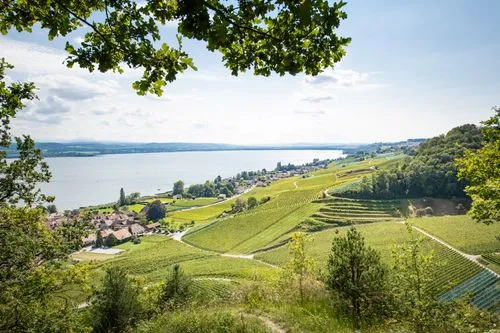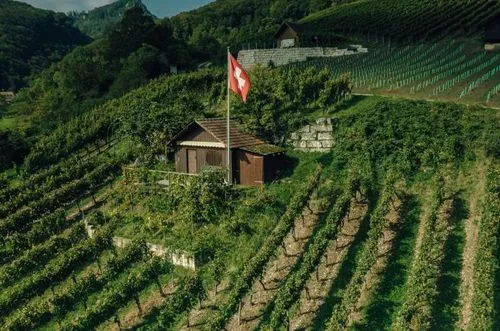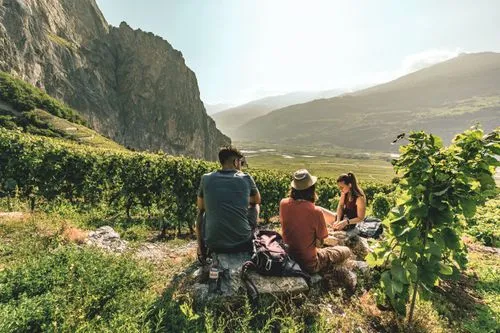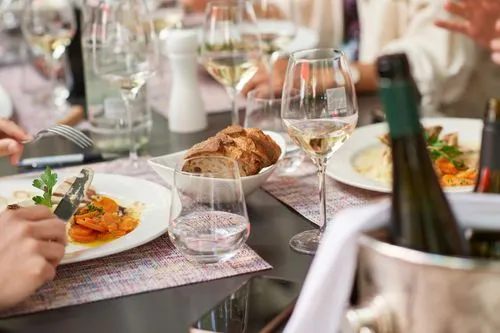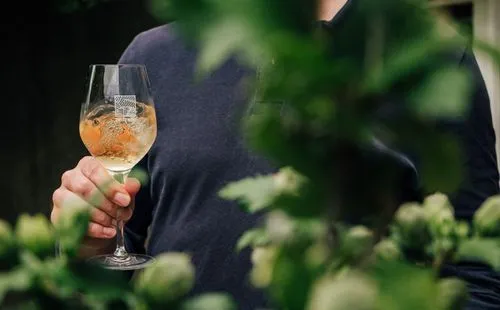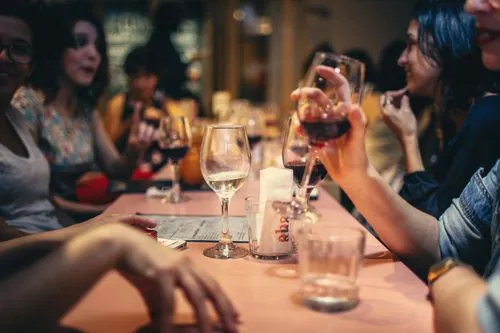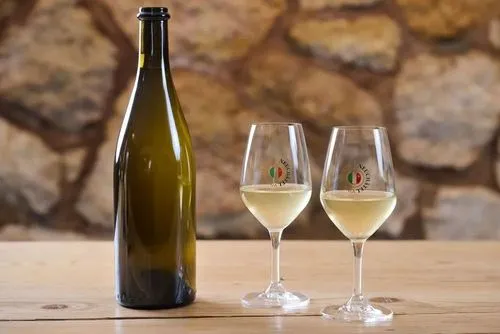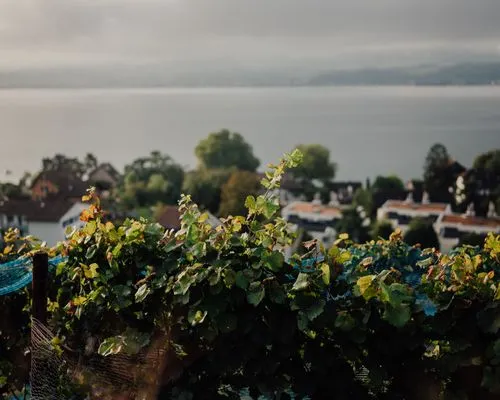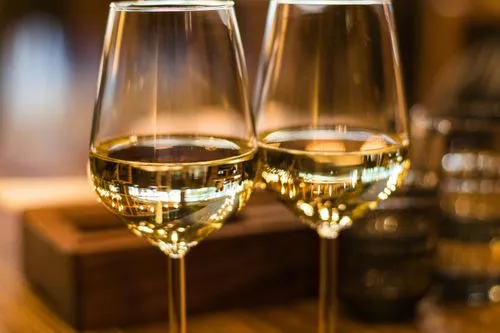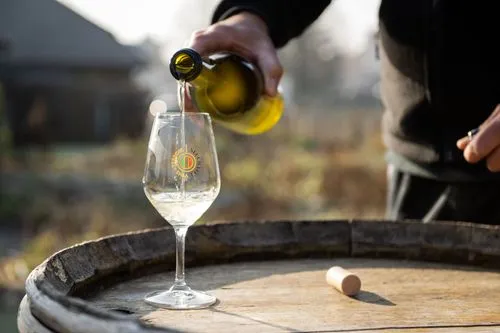She is willing to take risks for her organic wine
Sandrine Caloz, your winery is committed to organic viticulture. What are the main differences compared to conventional viticulture?
In organic viticulture, synthetic chemical herbicides, fungicides, and insecticides are not allowed. In addition, we are not allowed to use mineral fertilisers. However, the differences affect not only the work in the vineyard, but also in the cellar.
What are the differences there?
The Bio Suisse label has a comprehensive set of specifications that prohibits the use of many oenological products.
Why did you decide to make the switch?
It was more a philosophical decision. My father had already certified part of the vineyard for organic cultivation at the beginning of the 2000s. Of course, it is sometimes challenging, especially in a year like this. We had a lot of rain and therefore a lot of stress in terms of fungal diseases.
Nevertheless, the positive aspects outweigh the negative ones for you?
In principle, we have significantly less rain in Valais than in other parts of Switzerland. Thanks to the local climate, we are able to achieve satisfactory vintages in terms of both quantity and quality, even under extreme conditions. In addition, our area is highly mechanised, and we are able to work with tractors in a large part of the vineyard. This makes our work easier and reduces production costs. When I talk to colleagues from other cantons, I often hear how climate change is having an increasing impact on production. I can understand that they are worried. However, a change of direction is not an issue for me.
To what extent do you feel the effects of climate change in your business?
Since the winters are not as cold, spring frosts are more common. And then the extreme events alternate: in 2022 we had a drought, in 2024 a record amount of rain. In addition, new pests are appearing, such as the Japanese beetle. I wonder how long it will take before it appears here. Fortunately, research in Switzerland is working on finding biological control methods against this pest.
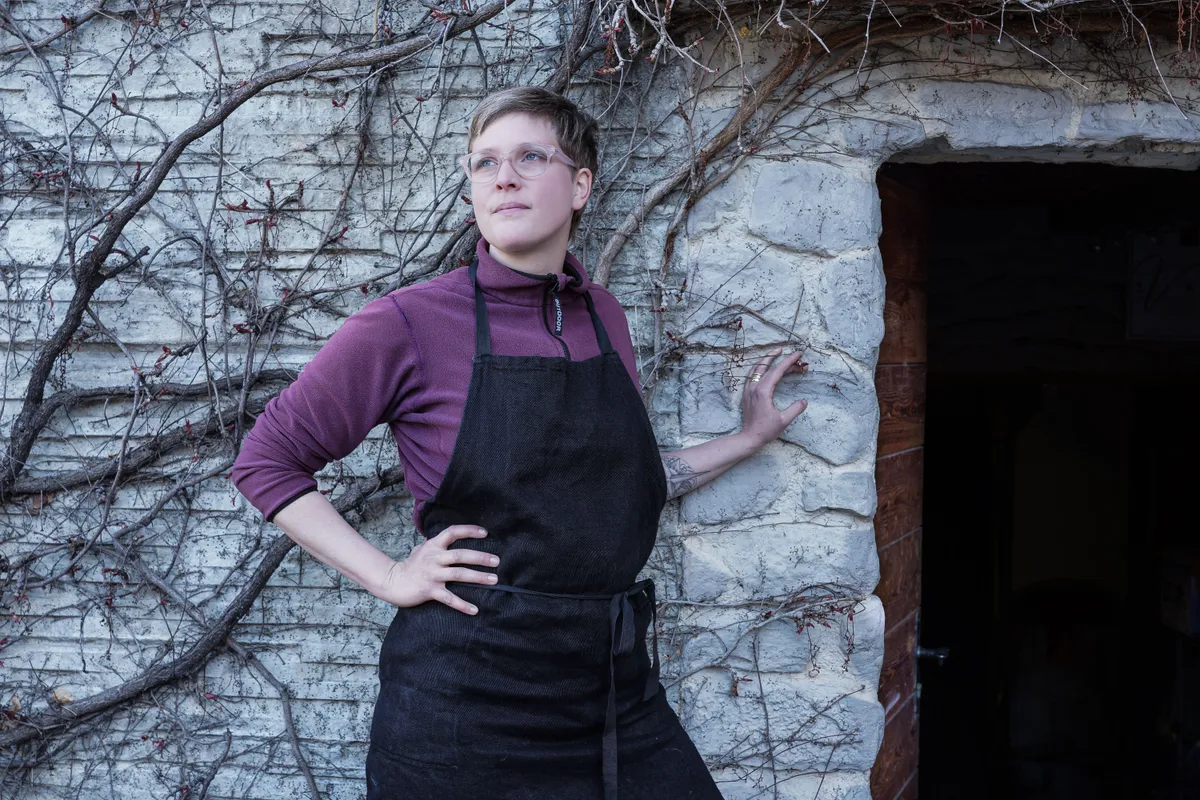
How would you describe your philosophy of viticulture?
For the past eight years, we have been focusing on regenerative viticulture, which improves the biodiversity and fertility of the vineyard. In August, we sow green manure crops such as rye, clover and Chinese cabbage. This is how we try to increase biodiversity, break out of monoculture and keep the soil covered. It also allows us to remove carbon from the atmosphere and store it in the soil.
What advantages does this bring?
When heavy rainfall occurs, soil that is not treated with herbicides is much less likely to erode. So it's an advantage if the soil is covered with grass. We have also noticed that certain bird species, including some that eat large insects, have returned to our vineyards. This is fascinating and valuable. At the same time, however, organic farming has higher production costs – in a challenging year like this one, by 20 to 30 per cent.
Are your wines correspondingly more expensive than those from conventional cultivation?
That is precisely the problem. In Switzerland, customers are only moderately receptive to the argument that wines from organic production involve higher costs. It is a selling point, but we cannot sell our wines at 30 per cent higher prices because of it. We always try to keep our prices competitive with neighbouring businesses. After all, we want to keep our customers who have been coming to us for years.
Sounds like a tightrope walk?
Ultimately, it's also a matter of calculation. We have a slightly higher margin for certain specialities and a slightly lower margin for entry-level wines, so that people on a tighter budget can also afford a Fendant or Gamay.
Is there anything else that is close to your heart when it comes to organic viticulture?
It is often presented as if organic and conventional winemakers were at odds with each other, but that's not true. Consumers sometimes have a very black-and-white view of the world, without really understanding the difficulties and commitment required to produce organically. At the same time, there are winemakers who work with great awareness according to the principles of integrated production (IP) and thus practice very sensible viticulture. I find the question of organic or non-organic more complicated than it seems at first glance, and for me there is no right or wrong.
Pretium
Related Articles
All the news about Swiss wines and exclusive reports.
To visit our site, you must be of legal drinking age in your country of residence.
